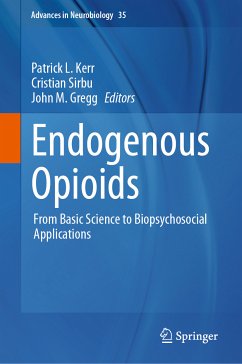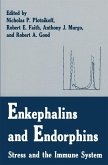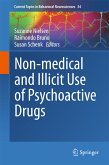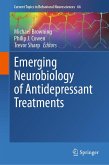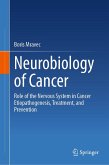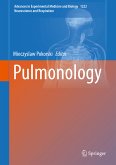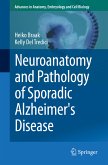Endogenous Opioids (eBook, PDF)
From Basic Science to Biopsychosocial Applications
Redaktion: Kerr, Patrick L.; Gregg, John M.; Sirbu, Cristian


Alle Infos zum eBook verschenken

Endogenous Opioids (eBook, PDF)
From Basic Science to Biopsychosocial Applications
Redaktion: Kerr, Patrick L.; Gregg, John M.; Sirbu, Cristian
- Format: PDF
- Merkliste
- Auf die Merkliste
- Bewerten Bewerten
- Teilen
- Produkt teilen
- Produkterinnerung
- Produkterinnerung

Hier können Sie sich einloggen

Bitte loggen Sie sich zunächst in Ihr Kundenkonto ein oder registrieren Sie sich bei bücher.de, um das eBook-Abo tolino select nutzen zu können.
This new volume provides a scientifically based exploration of the multifaceted world of endogenous opioids, including endorphins, enkephalins, dynorphins, endomorphins, and orphanin FQ/nociceptin, featuring a strong translational focus. Topics covered range from basic scientific investigations, to clinical applications, to investigations in areas such as oncology, childbirth, and disordered eating, to psychosocial contexts such as volunteering and positive emotions. One of the main goals of Endogenous Opioids is to provide recommendations for new directions in medical research and health policy that are rooted in sound scientific research.…mehr
- Geräte: PC
- ohne Kopierschutz
- eBook Hilfe
- Größe: 17.6MB
![Enkephalins and Endorphins (eBook, PDF) Enkephalins and Endorphins (eBook, PDF)]() Enkephalins and Endorphins (eBook, PDF)161,95 €
Enkephalins and Endorphins (eBook, PDF)161,95 €![Non-medical and illicit use of psychoactive drugs (eBook, PDF) Non-medical and illicit use of psychoactive drugs (eBook, PDF)]() Non-medical and illicit use of psychoactive drugs (eBook, PDF)121,95 €
Non-medical and illicit use of psychoactive drugs (eBook, PDF)121,95 €![Emerging Neurobiology of Antidepressant Treatments (eBook, PDF) Emerging Neurobiology of Antidepressant Treatments (eBook, PDF)]() Emerging Neurobiology of Antidepressant Treatments (eBook, PDF)137,95 €
Emerging Neurobiology of Antidepressant Treatments (eBook, PDF)137,95 €![Neurobiology of Cancer (eBook, PDF) Neurobiology of Cancer (eBook, PDF)]() Boris MravecNeurobiology of Cancer (eBook, PDF)121,95 €
Boris MravecNeurobiology of Cancer (eBook, PDF)121,95 €![Pulmonology (eBook, PDF) Pulmonology (eBook, PDF)]() Pulmonology (eBook, PDF)73,95 €
Pulmonology (eBook, PDF)73,95 €![Neuroanatomy and Pathology of Sporadic Alzheimer's Disease (eBook, PDF) Neuroanatomy and Pathology of Sporadic Alzheimer's Disease (eBook, PDF)]() Heiko BraakNeuroanatomy and Pathology of Sporadic Alzheimer's Disease (eBook, PDF)113,95 €
Heiko BraakNeuroanatomy and Pathology of Sporadic Alzheimer's Disease (eBook, PDF)113,95 €![Rodent Bioacoustics (eBook, PDF) Rodent Bioacoustics (eBook, PDF)]() Rodent Bioacoustics (eBook, PDF)81,95 €
Rodent Bioacoustics (eBook, PDF)81,95 €-
-
-
Dieser Download kann aus rechtlichen Gründen nur mit Rechnungsadresse in A, B, BG, CY, CZ, D, DK, EW, E, FIN, F, GR, HR, H, IRL, I, LT, L, LR, M, NL, PL, P, R, S, SLO, SK ausgeliefert werden.
- Produktdetails
- Verlag: Springer International Publishing
- Seitenzahl: 455
- Erscheinungstermin: 14. Juni 2024
- Englisch
- ISBN-13: 9783031454936
- Artikelnr.: 70971006
- Verlag: Springer International Publishing
- Seitenzahl: 455
- Erscheinungstermin: 14. Juni 2024
- Englisch
- ISBN-13: 9783031454936
- Artikelnr.: 70971006
- Herstellerkennzeichnung Die Herstellerinformationen sind derzeit nicht verfügbar.
